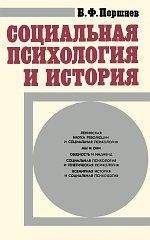Скотт Плаус - Психология оценки и принятия решений

Скачивание начинается... Если скачивание не началось автоматически, пожалуйста нажмите на эту ссылку.
Жалоба
Напишите нам, и мы в срочном порядке примем меры.
Описание книги "Психология оценки и принятия решений"
Описание и краткое содержание "Психология оценки и принятия решений" читать бесплатно онлайн.
Книга посвящена психологии принятия решений - теме, находящейся на стыке когни-тивной и социальной психологии и практически не освещенной в современной литературе. Автор в доступной форме анализирует особенности восприятия, памяти, модели принятия решений, социальную сторону оценки, выбора и принятия решений, типичные ситуации. Книга насыщена примерами из реальной жизни, тестами и уникальными упражнениями. Она поможет читателю понять механизм формирования оценки и принятия решений, а значит, избежать многих ошибок, просчетов и ловушек, подстерегающих его на этом пути.
Isen, A. M., Geva, N (1987). The influence of positive affect on acceptable level of risk: The person with a large canoe has a large worry. Organizational Behavior and Human Decision Processes, 39,145—154.
Isen, A. M., Patrick, R. (1983). The effect of positive feelings on risk taking: When the chips are down. Organizational Behavior and Human Performance, 31,194-202.
334
Ives, G. (1970). A history of penal methods: Criminals, witches, lunatics.
Montclair, NJ: Patterson Smith. Janis, I. L. (1982). Groupthink: Psychological studies of policy decisions and
fiascoes(2nd ed.). Boston: Houghton Mifflin.
Jenkins, H. M., Ward, W. C. (1965). The judgment of contingency between responses and outcomes. Psychological Monographs, 79,(Whole No. 594). Jenkins, J. J.(1981). Can we have a fruitful cogninive psychology? In J. H. Flowers (Ed.). Nebraska symposium on motivation, 1980.Lincoln: University of Nebraska Press.
Jennings, D. L., Amabile, T. V., Ross, L. (1982). Informal covariation assessment: Data-based versus theory based judgments. In D. Kahneman, P. Slovic, A. Tversky (Eds.), Judgment under uncertainty: Heuristics and biases.Cambridge, England: Cambridge University Press.
Johnson, E. J., Tversky, A. (1983). Affect, generalization, and the perception of risk. Journal of Personality and Social Psychology, 45,20—31.
Jones, E. E. (1979). The rocky road from acts to dispositions. American Psychologist, 34,107—117.
Jones, E. E., Davis, К. Е. (1965). From acts to dispositions: The attribution process in person perception. In L. Berkowitz (Ed.), Advances in experimental social psychology(Vol. 2, pp. 219—266). New York: Academic Press.
Jones, E. E., Harris, V. A. (1967). The attribution of attitudes. Journal of Experimental Social Psychology, 3,1—24.
Jones, E. E., Nisbett, R. E. (1971). The actor and the observer: Divergent perceptions of the causes of behavior. In E. E. Jones et al. (Eds.), Attribution: Perceiving the causes of behavior.Morristown, NJ: General Learning Press.
Jones, E. E., Wood, G. C, Quattrone, G. A. (1981). Perceived variability of personal characteristics in in-groups and out-groubs: The role of knowledge and evaluation. Personality and Social Psychology Bulletin, 7,523—528.
Jones, R. T. (1971). Tetrahydrocannabinol and the marijuana-induced social "high", or the effects of the mind on marijuana. Annals of the New York Academy of Sciences, 191,155—165.
Jussim, L. (1986). Self-fulfilling prophecies: A theoretical and integrative review. Psychological Review, 93,429—445.
Kahneman, D. (1991). Judgment and decision making: A personal view. Psychological Science, 2,142—145.
Kahneman, D., Knetsch, J, L., Thaler, R. H. (1990). Experimental tests of the endowment effect and the Coase theorem. Journal of Political Economy, 98,1325-1348.
Kahneman, D., Tversky, A. (1972). Subjective probability: A judgment of representativeness. Cognitive Psychology, 3,430—454.
Kahneman, D., Tversky, A. (1973). On the psychology of prediction. Psychological Review, 80,237—251.
335
Kahneman, D., Tversky, A. (1979). Prospect theory: An analysis of decision under risk. Econometrica, 47,263—291.
Kammer, D. (1982). Differences in trait ascriptions to self and friend: Un-confounding intensity from variability. Psychological Reports, 51,99—102.
Kantola, S. J., Syme, G. J., Campbell, N. A. (1984). Cognitive dissonance and energy conservation. Journal of Applied Psychology, 69,416—421.
Karmarkar, U. (1978). Subjectively weighted utility: A descriptive extension of the expected utility model. Organizational Behavior and Human Performance, 21,61—72.
Kassin, S. M. (1979). Consensus information, prediction, and causal attribution: A review of the literature and issues. Journal of Personality and Social Psychology, 37,1966-1981.
Kelley, H. H. (1950). The warm-cold variable in first impressions of persons. Journal of Personality, 18,431—439.
Kelley, H. H. (1967). Attribution theory in social psychology. In D. Levine (Ed.), Nebraska symposium on motivation, 1967.Lincoln: University of Nebraska Press.
Kelley, H. H. (1973). The processes of causal attribution. American Psychologist, 28,107-128.
Kelley, H. H., Michela, J. L. (1980). Attribution theory and research. Annual Review of Psychology, 31,457—501.
Keren, G. (1987). Facing uncertainty in the game of bridge: A calibration study. Organizational Behavior and Human Decision Processes, 39,98—114.
Klayman, J., Ha, Y. (1987). Confirmation, disconfirmation, and information in hypothesis testing. Psychological Review, 94,211—228.
Kleinmuntz, D. N. (1985). Cognitive heuristics and feedback in a dynamic decision environment. Management Science, 31,680—702.
Knetsch, J. L., Sinden, J. A. (1984). Willingness to pay and compensation demanded: Experimental evidence of an unexpected disparity in measures of value. Quarterly Journal of Economics, 99,507—521.
Knox, R. E., Inkster, J. A. (1968). Postdecision dissonance at post time. Journal of Personality and Social Psychology, 8,319—323.
Kogan, N., Wallach, M. A. (1964). Risk taking: A study in cognition and personality.New York: Holt, Rinehart and Winston.
Koriat, A., Lichtenstein, S., Fischhoff, B. (1980). Reasons for confidence. Journal of Experimental Psychology: Human Learning and Memory, 6,107—118.
Kristiansen, С. М. (1983). Newspaper coverage of diseases and actual mortality statistics. European Journal of Social Psychology,13, 193—194.
Lamal, P. A. (1979, October). College student common beliefs about psychology. Teaching og Psychology,pp. 155—158.
Landy, D., Sigall, H. (1974). Beauty is talent: Task evaluation as a function of the performer's physical attractiveness. Journal of Personality and Social Psychology, 29,299-304.
336
Langer, E. J. (1975). The illusion of control. Journal of Personality and Social Psychology, 32,311-328.
Langer, E. J., Rodin, J. (1976). The effects of choice and enhanced personal responsibility for the aged: A Field experiment in an institutional setting. Journal of Personality and Social Psychology', 34,191—198. Langer, E. J., Roth, J. (1975). Heads I win, tails it's chance: The illusion of control as a function of the sequence of outcomes in a purely chance task. Journal of Personality and Social Psychology, 32,951—955. La Piere, R. T. (1934). Attitudes vs. actions. Social Forces, 13,230—237. Lasky, J. J., Hover, G. L., Smith, P. A., Bostian, D. W., Duffendack, S. C, Nord, C. L. (1959). Post-hospital adjustment as predicted by psychiatric patients and by their staff. Journal of Consulting Psychology, 23,213—218. Latane, В., Dabbs, J. M., Jr. (1975). Sex, group size and helping in three
cities. Sociometry, 38,180—194. Latane, В., Darley, J. M. (1969). Bystander "apathy". American Scientist,
57,244-268. Latane, В., Darley, J. M. (1970). The unresponsive bystander: Why doesn't
he help?Englewood Cliffs, NJ: Prentice-Hall. Latane, В., Nida, S. (1981). Ten years of research on group size and
helping. Psychological Bulletin, 89,308—324.
Latane, В., Williams, K., Harkins, S. (1979). Many hands make light the work: The causes and consequences of social loafing. Journal of Personality and Social Psychology, 37,822—832.
Latane, В., Wolf, S. (1981). The social impact of majorities and minorities. Psychological Review, 88,438—453. Leary, M. R. (1981). The distorted nature of hindsight. Journal of Social
Psychology, 115,25—29. Leary, M. R. (1982). Hindsight distortion and the 1980 presidential election.
Personality and Social Psychology Bulletin, 8,257—263. Leddo, J., Abelson, R. P., Gross, P. H. (1984). Conjunctive explanations: When two reasons are better Than one. Journal of Personality and Social Psychology, 47,933—943.
Lefcourt, H. M. (1982). Locus of control: Current trends in theory and research.Hillsdale, NJ: Erlbaum.
Leippe, M. R., Wells, G. L., Ostrom, Т. М. (1978). Crime seriousness as a determinant of accuracy in eyewitness identification. Journal of Applied Psychology, 63,345-351. Lelyveld, J. (1986, October 5). Britainheads for nuclear war at polls. New
York Times,p. E2.
Levi, A. S., Pryor, J. B. (1987). Use of the availability heuristic in probability estimates of future events: The effects of imagining outcomes versus imagining reasons. Organizational Behavior and Human Decision Processes, 40,219-234.
337
Lichtenstein, S., Fischhoff, B. (1977). Do those who know more also know more about how much they know? Organizational Behavior and Human Performance, 20,159—183. Lichtenstein, S., Fischhoff, B. (1980). Training for calibration.
Organizational Behavior and Human Performance, 26,149—171. Lichtenstein, S., Fischhoff, В., Phillips, L. D. (1982). Calibration of probabilities: The state of the art to 1980. In D. Kahneman, P. Slovic, A. Tversky (Eds.), Judgment under uncertainty: Heuristics and biases.Cambridge, England: Cambridge University Press.
Lichtenstein, S., Slovic, P. (1971). Reversals of preference between bids and choices in gambling decisions. Journal of Experimental Psychology, 89,46-55.
Lichtenstein, S., Slovic, P. (1973). Response-induced reversals of preference in gambling: An extended replication in Las Vegas. Journal of Experimental Psychology, 101,16—20. Loftus, E. F. (1975). Leading questions and the eyewitness report. Cognitive
Psychology, 7,560—572.
Loftus, E. F. (1979). Eyewitness testimony.Cambridge, MA: Harvard University Press. Loftus, E. (1980). Memory: Surprising new insights into how we remember and
why we forget.New York: Ardsley House.
Loftus, E. F., Palmer, J. C. (1974). Reconstruction of automobile destruction: An example of the interaction between language and memory. Journal of Verbal Learning and Verbal Behavior, 13,585—589. Loomes, G., Sugden, R. (1982). Regret theory: An alternative theory of
rational choice under uncertainty. Economic Journal, 92,805—824. Loomes, G., Sugden, R. (1983). A rationale for preference reversal. American Economic Review, 73,428—432. Loomes, G., Sugden, R. (1987). Some implications of a more general
form of regret theory. Journal of Economic Theory, 41,270—287. Lopes, L. L. (1981). Decision making in the short run. Journal of Experimental Psychology: Human Learning and Memory, 7,377—385. Lopes, L. L. (1982). Doing the impossible: A note on induction and the experience of randomness. Journal of Experimental Psychology: Learning, Memory, and Cognition, 8,626—636. Lopes, L. L. (1991). The rhetoric of irrationality. Theory Psychology, 1,
65-82.
Lopes, L. L., Oden, G. C. (1987). Distinguishing between random and nonrandom events. Journal of Experimental Psychology: Learning, Memory, and Cognition, 13,392—400.
Lord, С G., Lepper, M. R., Preston, E. (1984). Considering the opposite: A corrective strategy for social judgment. Journal of Personality and Social Psychology, 47,1231-1243.
338
Lord, С. G., Ross, L., Lepper, M. R. (1979). Biased assimilation and attitude polarization: The effects of prior theories on subsequently considered evidence. Journal of Personality and Social Psychology, 37,2098—2109.
Loy, J. W., Andrews, D. S. (1981). They also saw a game: A replication of a case study. Replications in Social Psychology, 1,45—49.
Luce, R. D. (1959). Individual choice behavior.New York: Wiley.
Luce, R. D. (1990). Rational versus plausible accounting equivalences in preference judgments. Psychological Science, 1,225—234.
Luck, R. R, van den Bosch, P., Garcia, R. (1977). Chemical insect control—A troubled pest management strategy. BioScience,606—611.
Maass, A., Clark, R. D., III. (1984). Hidden impact of minorities: Fifteen years of minority research. Psychological Bulletin, 95,428—450.
Mackie, D. M., Allison, S. T. (1987). Group attribution errors and the illusion of group attitude change. Journal of Experimental Social Psychology, 23,460-480.
Maier, N. R. R, Solem, A . R. (1952). The contribution of a discussion leader to the quality of group thinking: The effective use of minority opinions. Human Relations, 5,277—288.
Malkiel, B. G. (1985). A random walk down Wall Street(4th ed.). New York: W. W. Norton Co.
Malone, B. (1990, September 9). Double trouble: Lives of two Frank William Boumas bedeviled by strange coincidences. Grand Rapids Press,pp. B1-B2.
Marks, R. W. (1951). The effect of probability, desirability, and "privilege" on the statrd expectations of children. Journal of Personality, 19,332—351.
Matsuda, N. (1985). Strong, quasi-, and weak conformity among Japanese in the modified Asch procedure. Journal of Cross Cultural Psychology, 16,83-97.
Подписывайтесь на наши страницы в социальных сетях.
Будьте в курсе последних книжных новинок, комментируйте, обсуждайте. Мы ждём Вас!
Похожие книги на "Психология оценки и принятия решений"
Книги похожие на "Психология оценки и принятия решений" читать онлайн или скачать бесплатно полные версии.
Мы рекомендуем Вам зарегистрироваться либо войти на сайт под своим именем.
Отзывы о "Скотт Плаус - Психология оценки и принятия решений"
Отзывы читателей о книге "Психология оценки и принятия решений", комментарии и мнения людей о произведении.


























